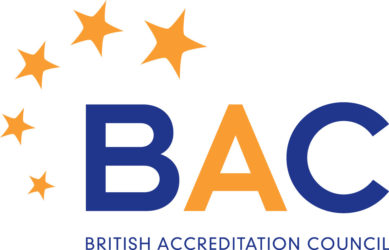Genny, our Director of Curriculum, Reflects on Learning English as a Second, or Additional, Language
Want to improve your English? Hoping to one day study abroad?
There are many reasons to learn English specifically. In an increasingly globalized world, the advantages to learning English as a foreign language and being able to communicate with English speakers around the world, both online and in person, are limitless.
Communication is Key
There are great advantages to learning any additional language. Communication is fundamental to personal and professional happiness, so it is no wonder that language learning has long been a cornerstone of educational curriculums for children and adolescents around the world. In fact, the advantages of learning a second, third, even fourth language go far beyond even the direct benefits of increased opportunities for communication.
Brain Training
Research has long suggested that bilingualism (the ability to speak two language) or multilingualism (the ability to speak two or more languages) has concrete advantages for our brains. Speaking two or more languages can improve neural plasticity, meaning that it can help us to focus and to shift our focus quickly from one task to another or one element of a situation to another. It has also been proven to improve memory.
Explore our ESL Course https://www.reachcambridge.com/courses/english-as-second-language
Expanding Horizons

A common language can unite friends from all over the world!
Learning another language also provides opportunities to expand our understandings of the world around us and of our own experience. This is especially clear when we encounter what are sometimes called ‘untranslatable words,’ or, words that describe something that does not have a specific term in any other language. Because English is a relatively new language and because it has a habit of taking on words from other languages with which it comes into contact, the importance of multiple vocabularies is worked right into its own vocabulary: have you ever heard anyone talk about the Romantic or Germanic roots of some English words? This means that those English words developed out of contact between English and French speakers or English and German speakers, especially. Speaking and understanding one or more of these languages means understanding more of the puzzle pieces that make up our modern world!
Finally, one of my favourite advantages of learning a new language lies in learning to see yourself, or the world, in a new way. In French, for example, a person ‘has’ age or hunger (j’ai dix-sept ans, j’ai faim); whereas, in English, we say ‘I am seventeen years old’ and ‘I am hungry.’ How different does the world looks if you ‘have’ or ‘are’ a certain age? If you ‘are’ or ‘have’ an experience like hunger?
Languages are part of who we are and a key lens through which we see and interact with the world around us.
Like literacy and logic, learning a new language has broader implications for our overall well-being and is capable of impacting studies in all other areas. Knowing how to speak French, or German, or Cantonese might not help you with complex division on your next maths test, but it could help you develop memory habits and abilities to make studying for that test a little easier.
We’d love to share what makes the English language so special to us, and to learn a bit more about your native languages along the way! Past student Johanna says she learned ‘so many random languages’ by attending Reach and making new friends from all over the world!
English as YOUR Second Language
Come and learn English with us so that you can meet new people and make new friends, watch English television or apply to an English-language University. Learn what it means to think in English, open up new opportunities, and expand your experience of the world.






